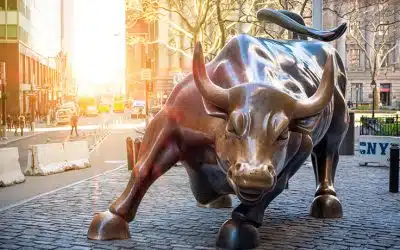Soccer, the new ESG investment?

Redacción Mapfre
In recent years, one of the most prominent trends in the investment management industry has been the explosive growth of socially responsible funds, also known as ESG funds: “Environmental, Social, and Governance.” These investors have taken different perspectives, whether excluding certain industries from their portfolios, or favoring companies with better ratings according to these responsible investment criteria or those that have recently improved the most in this regard.
We have previously mentioned how surprised we are that the world of sports has, for the moment, been left out of the wave of thematic investment in Europe. It is a sector that is simple to understand, present in our daily lives, with a certain visibility in the medium to long term, and it is supported by demographic and behavioral trends. However, major fund managers seem to have ignored its value as a thematic investment, at least until now.
A different angle, and one that is equally or more interesting, in our view, is to discern whether this opportunity will be seized upon by funds specialized in responsible criteria. Investing in sport means investing in values, education, and health, as well as clearing the way for narratives of improved corporate governance and new routes to environmental sustainability. If anyone doubts the impact that a major sports club can have on its community and its environment, let them look, for example, at the work done by Bàsquet Girona under the leadership of Marc Gasol.
In particular, the world of soccer, due to its enormous global significance, would, in our opinion, be a particularly interesting niche for ESG investors to focus on at this time. One of my own idols, Julio García Mera, often quotes a simple and accurate phrase that he attributes to Michel, the former Real Madrid player: “The best place: soccer.”
The fact is that the world’s favorite sport, in terms of the number of people who play it worldwide, best epitomizes the benefits that physical activity has on health and society (the “S” of the ESG). Very often, playing sports has facilitated integration and saved young people in different countries from other activities that are harmful to them. Not to mention the impact that can be generated by any social initiative organized by the clubs themselves or the players, whose level of notoriety and influence is difficult to match.
Furthermore, the necessary renovation of soccer infrastructures will undoubtedly have an impact on their community and should include, as it very often does, the integration of environmental sustainability criteria (the “E” of the ESG). Renovations of stadiums or sports complexes, for example, are already beginning to include energy efficiency measures, solutions for more responsible transportation, or a healthier and more sustainable food supply, to name a few examples.
Lastly, the transformation of European soccer from a sector where making a rational investment was once unthinkable to one that is drawing the interest of more and more professional investors is largely a story of better corporate governance (the "G" in ESG). The advent of economic control standards, although still far from perfect, was an important turning point. The new wave of investors in soccer is bringing, in general, more professional corporate governance structures and senior management teams.
In short, as we have noted more than once, while soccer has been around as a sport for more than 150 years, the industry around it is just now being born. Will ESG or socially responsible investors be the ones that focus our attention on the economic transformation of the world’s favorite sport? Certainly, we can think of few sectors of activity that are a better fit for this investment philosophy and that have so many and so varied opportunities to make a positive impact on the world of tomorrow.
Luis García Álvarez, CFA
Investment Manager at MAPFRE AM



